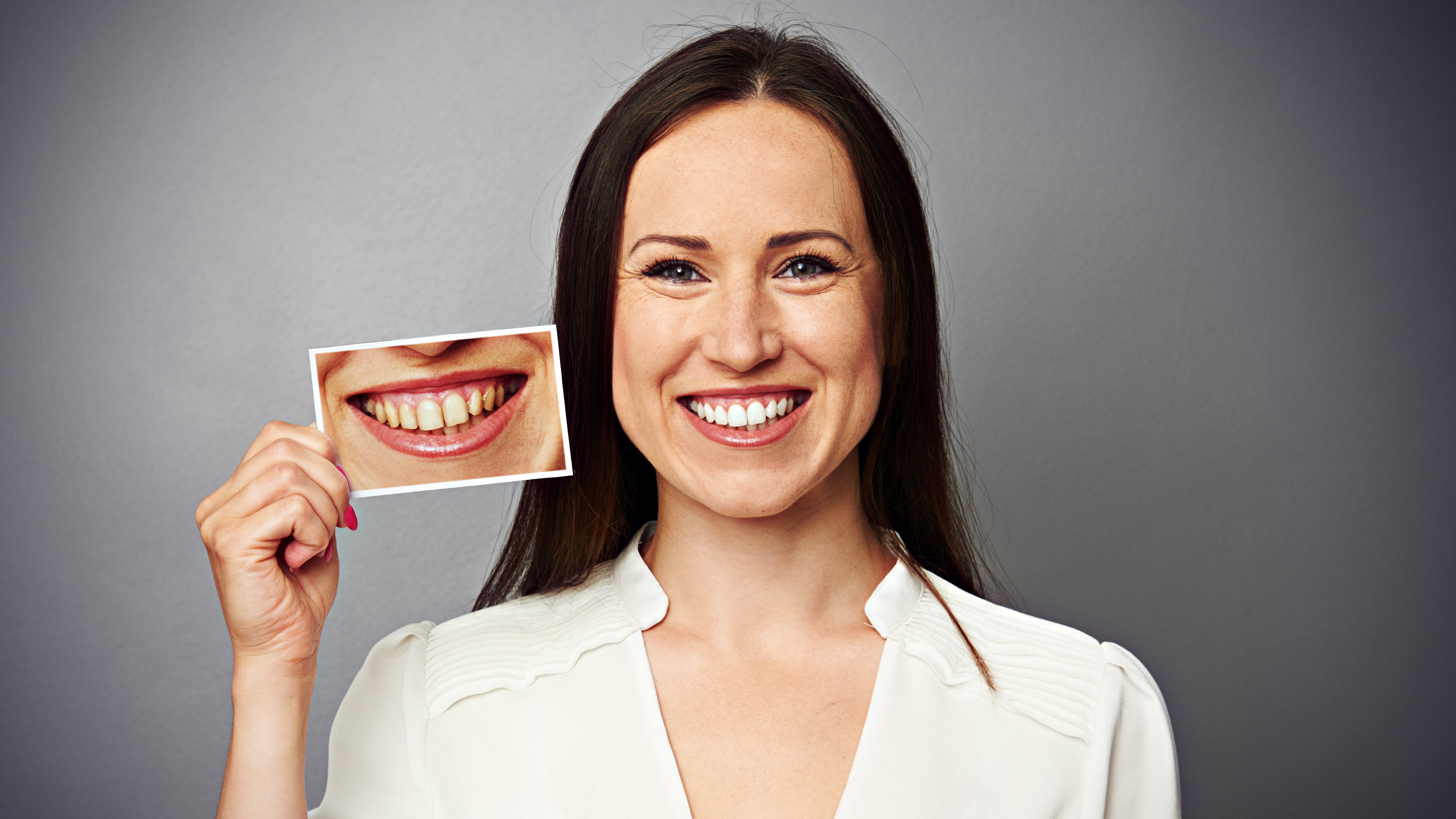What is teeth whitening?
Everything you need to know about whitening your teeth.

Sign up to receive the latest news, reviews, buying guides and deals direct to your inbox
You are now subscribed
Your newsletter sign-up was successful
Your smile is the front line between you and other people: when you smile at a stranger, you want your pearly whites to be in tip-top shape, which is why many of us use the best teeth whiteners to get the job done easily and quickly at home.
We can't always control the shape of our teeth, but now, we can somewhat control how white our teeth are. White teeth say that we have a good oral health and hygiene, leaving people with a great impression of us.
But over time, our teeth may yellow and become stained. Why? Time, food, drink, and other factors naturally wear down and stain our teeth. While yellowing teeth are nothing to be ashamed of, you may lose confidence in your smile. You can turn to enamel whiteners to erase stains. Here's everything you need to know about teeth whitening, including which of the best electric toothbrushes can brighten your smile too.
What is teeth whitening?
Teeth whitening is the process that lightens the color of your teeth by either removing or hiding the stains on the surface. There are a number of ways you can whiten your teeth, and many of them are relatively accessible over-the-counter solutions. These are not covered by the best dental insurance, so you'll be covering the cost yourself.
How does teeth whitening work?
Generally, teeth whiteners contain an active whitening or bleaching agent, usually carbamide peroxide or hydrogen peroxide. These chemicals penetrate the enamel to alter the discolored molecules of each tooth.
These chemicals are delivered in different ways. The most common ways they can be administered are through strips and gels that are added to mouth molds.
Is teeth whitening safe?
Dentists agree that teeth whitening solutions, both in and out of the dentist's office, are safe for adults to use. The key is to stick to products and methods that have been approved by your dentist.
Sign up to receive the latest news, reviews, buying guides and deals direct to your inbox
Consult with an oral health specialist to determine what you should avoid, depending on the condition of your teeth and gums. For example, if you have particularly sensitive teeth, your dentist may recommend a different array of products.
Can teeth whitening have side effects?
While at home, over-the-counter teeth whitening solutions are considered safe to use, there are a number of side effects that you may experience, depending on the teeth whitening method you choose. Some side effects are:
- Teeth sensitivity: You may experience some sensitivity after using teeth-whitening agents of any kind. If you want to continue the process, you dentist may recommend different products or recommend products to help diminish the sensitivity over time.
- Irritated gum: You may experience a burning or tingling sensation in your gums, which may also turn white when using teeth whitening products. This gum irritation will also go away over time.
- Blistered lips: Some people who use teeth-whitening solutions that use LED lights report experiencing blistering lips.
- Undesirable results: Some people's teeth don't whiten at all with over-the-counter teeth-whitening solutions, and some even experience further discoloration. If this happens, it's best to consult your dentist right away.
How much does teeth whitening cost?
Over-the-counter teeth whitening solutions can vary in cost, but will generally set you back anywhere between $20 to $60. These treatments also vary in terms of both results and treatment time, so read instructions carefully – you may need to purchase more than one kit, depending on how bright you want your teeth to be.
Buying Guides
Best home gyms 2026: Top-rated machines from Bowflex, Marcy and TRX for your home
Best electric razors 2026: Waterproof shavers for your face and body
Best exercise bikes 2022: Top stationary bikes for cycling workouts at home
Best elliptical machines: top cross trainers for home workouts, chosen by experts
Best sunrise alarm clocks: Cheerful wake-up lights for all budgets
Best electric head shavers: Including the top bald head shavers
Reviews
The Beurer TL30 improved the quality of our sleep after just one week of use
If you choose to go to the dentist to whiten your teeth, costs can reach $500 a session. Your dentist will determine how many sessions you need and what products to use on your teeth depending on their state. If you don't want to spend that much on teeth whitening (whether or not your insurance covers a part of the procedures), your dentist may also recommend teeth whitening products.
I've had dental work done – can I use over-the-counter teeth whiteners?
If you want to use over-the-counter teeth whiteners and have had work done on your teeth, the results may be affected by those alterations. For example, veneers, crowns, bridges, and fillings do not bleach, so you may simply need to have the dental work redone to match the color of the rest of your teeth.
Consult your dentist to figure out if it would be cheaper and better for your smile, in the long run, to invest in in-office teeth-whitening treatment as opposed to OTC teeth whiteners.
Sophie is a born and bred New Yorker who, paradoxically, loves being in the great outdoors. Her favorite pastimes include running, baking, and writing. She also spends her time volunteering and leading volunteer projects with the Good+ Foundation and Achilles International when not providing information on the best deals, products, and services on the internet to TopTenReviews readers.

